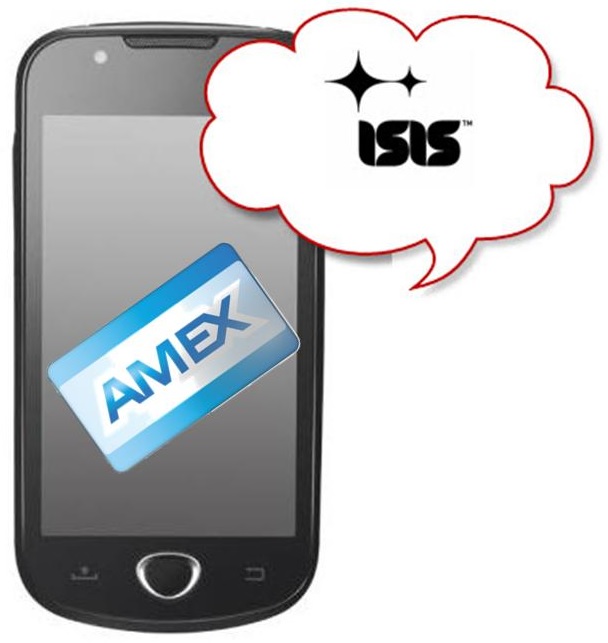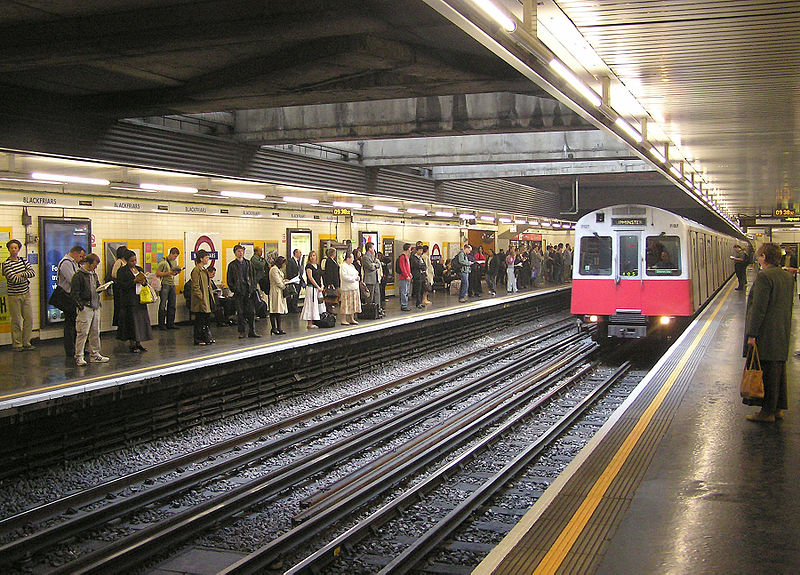This adds one more option to the limited number of cards that are currently available to use.
The joint venture Isis mobile wallet that was created through AT&T, T-Mobile, and Verizon has not been entirely popular among consumers, even after its nationwide launch in November, but the payments option is now working to overcome one of its primary barriers to adoption.
The system is now supporting American Express Serve to help to boost its cards.
One of the primary problems that consumers have had with the Isis mobile wallet is that it supported only two cards. Those are the Chase and American Express cards. This means that if a consumer wishes to try the service he or she must have one of those two cards. It won’t support regular debit cards, nor the two credit card giants, Visa and MasterCard, at the moment. This new addition could help to change that.
The latest change to the Isis mobile wallet could mean that more cards will be compatible, if indirectly.
 With the support that the payments service will now have for American Express Serve, it will mean that there could be a roundabout way for consumers to be able to choose their favorite cards to pay for their purchases. The reason is that Serve acts as a kind of digital prepaid card that can be prepaid. This means that it can be loaded with funds from credit cards, debit cards, or a bank account. Once the funds have been added, it can be used in any location that already accepts American Express credit cards.
With the support that the payments service will now have for American Express Serve, it will mean that there could be a roundabout way for consumers to be able to choose their favorite cards to pay for their purchases. The reason is that Serve acts as a kind of digital prepaid card that can be prepaid. This means that it can be loaded with funds from credit cards, debit cards, or a bank account. Once the funds have been added, it can be used in any location that already accepts American Express credit cards.
As Serve has already been doing a great deal better than the Isis mobile wallet, overall, particularly among business clients, it looks as though this could give the program a considerable shot in the arm in terms of its appeal to consumers and its compatibility with the types of cards that they already carry. It has also been considered to be quite helpful in terms of expense management, as it functions in the same way as cash instead of credit. It makes it easier for the user to be able to stick to a budget and pay attention to how much he or she is spending.
This technology is intended to be implemented at some point during 2014 for transit users.
The well known Oyster cards used for London’s transportation system could soon be a thing of the past if the contactless mobile payments solution proves to be successful next year after it is implemented.
This could represent a considerable change in the technology that is used by the transit system.
The test of the contactless mobile payments will begin this month and is expected to run for two full months. It will involve the participation of 5,000 people who regularly use the Tube, the Overground, or the DLR. They will be able to tap their way into and out of the system using a bank card that doesn’t need to be swiped. The system was already implemented using NFC technology into the busses in London in December a year ago. The full implementation of the service is now expected to occur next year.
This use of contactless mobile payments is expected to save the system a tremendous amount of money.
 In fact, it has been predicted that through the use of this NFC technology, instead of the traditional Oyster card, the transit system will be saving £80 million per year. This data is according to the information released by TfL in an interview that was conducted by the London Evening Standard.
In fact, it has been predicted that through the use of this NFC technology, instead of the traditional Oyster card, the transit system will be saving £80 million per year. This data is according to the information released by TfL in an interview that was conducted by the London Evening Standard.
It is not entirely clear exactly how this system will work. The passengers who use the service will be charged the rates that are the equivalent to the pay as you go system. However, when the system goes live, it is not yet known to the public whether the new form of transaction will allow them to purchase Travelcards at the reduced rate. At the time that the interview was held, TfLwas unable to state whether or not this new form of paying for transit would be followed by a method of using smartphones to pay for fare.
The TfL has stated that it is committed to a number of new contactless mobile payments initiatives that would include the use of smartphones for various purposes. This could include paying for fare, one day, but it also involves a promise that WiFi will become available in all of the Tube stations. All ticketing staff will also soon be equipped with iPads. The changes that will be made to offices and ticket halls will mean that 950 jobs will be cut as they are closed by 2015.
 With the support that the payments service will now have for American Express Serve, it will mean that there could be a roundabout way for consumers to be able to choose their favorite cards to pay for their purchases. The reason is that Serve acts as a kind of digital prepaid card that can be prepaid. This means that it can be loaded with funds from credit cards, debit cards, or a bank account. Once the funds have been added, it can be used in any location that already accepts American Express credit cards.
With the support that the payments service will now have for American Express Serve, it will mean that there could be a roundabout way for consumers to be able to choose their favorite cards to pay for their purchases. The reason is that Serve acts as a kind of digital prepaid card that can be prepaid. This means that it can be loaded with funds from credit cards, debit cards, or a bank account. Once the funds have been added, it can be used in any location that already accepts American Express credit cards.
 In fact, it has been predicted that through the use of this
In fact, it has been predicted that through the use of this 